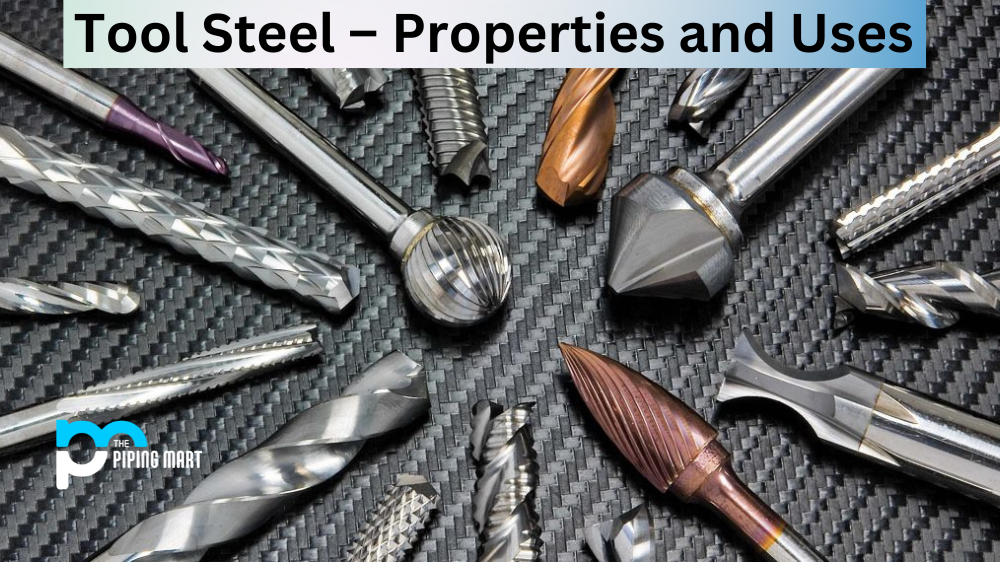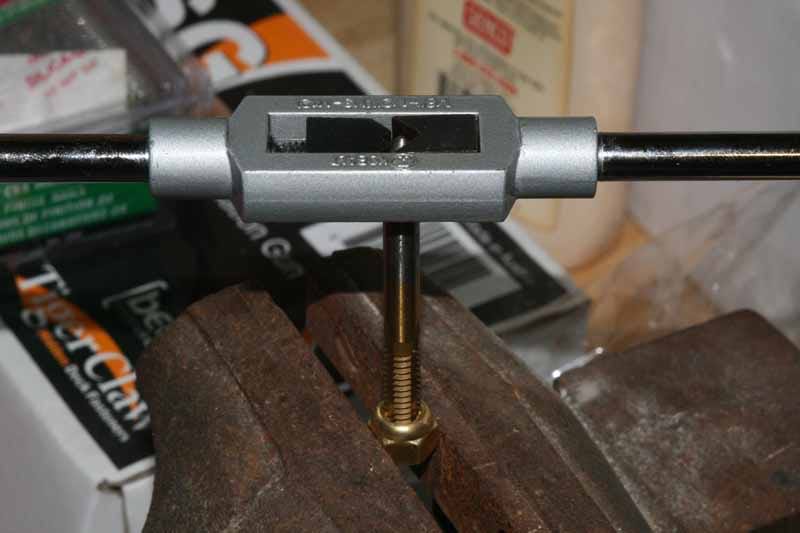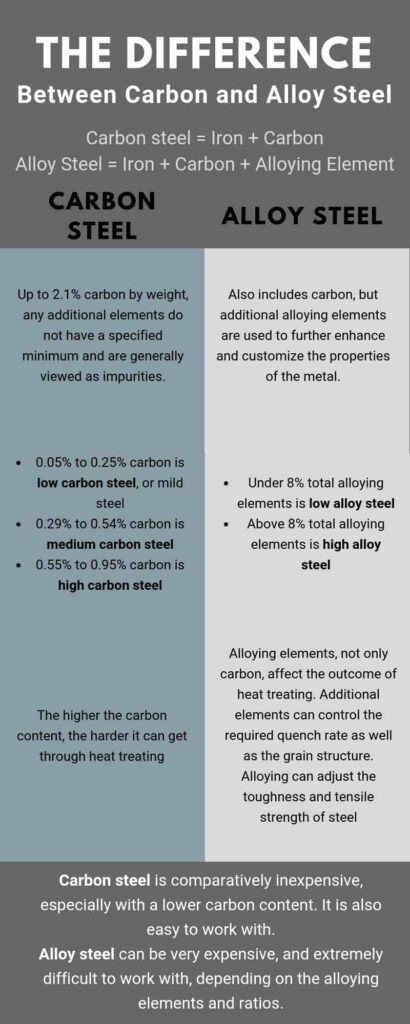Table of Contents
- Steel Tools: Properties and Applications
- Steel Tools: Properties and Applications
- Key Takeaways: Steel Tools: Properties and Applications
- Frequently Asked Questions
- What are the properties of steel tools?
- What are the applications of steel tools?
- How are steel tools different from tools made of other materials?
- What are some common types of steel used for tools?
- How can I maintain and prolong the lifespan of steel tools?
- Guide to Understanding Steel | Materials Talk Series
- Final Summary: Steel Tools – The Versatile Solution for Your Needs
When it comes to steel tools, you can’t help but be amazed by their incredible properties and wide range of applications. From construction to manufacturing, steel tools are an essential part of various industries. So, what makes steel tools so special? Let’s dive into the fascinating world of steel and explore its properties and applications.
Steel is known for its exceptional strength and durability, making it the go-to material for tools. Its high tensile strength allows it to withstand immense pressure without breaking or deforming, making it perfect for heavy-duty applications. Additionally, steel tools have excellent resistance to wear and corrosion, ensuring their longevity and reliability in harsh environments. Whether it’s a wrench, a drill bit, or a hammer, steel tools can handle the toughest tasks with ease.
In terms of applications, steel tools find themselves in a wide array of industries. Construction workers heavily rely on steel tools for tasks such as cutting, drilling, and fastening. Automotive mechanics use steel tools to repair and maintain vehicles, while craftsmen and artisans utilize them for precision work. The versatility of steel tools extends even further, as they are also utilized in the medical field for surgeries and other procedures. With their strength, durability, and versatility, steel tools truly make a difference in countless industries.
In this article, we will delve deeper into the properties of steel that make it ideal for tool production. We will also explore the various applications of steel tools in different industries, highlighting their importance and impact. So, grab your hard hat and tool belt as we embark on a journey through the fascinating world of steel tools.
Steel Tools: Properties and Applications
Steel tools are widely used in various industries due to their exceptional properties and versatile applications. Steel, an alloy composed primarily of iron and carbon, offers excellent strength, durability, and resistance to wear and corrosion.
These tools can withstand high temperatures and heavy loads, making them ideal for cutting, drilling, shaping, and fastening tasks. From construction to manufacturing, steel tools play a crucial role in enhancing productivity and efficiency.
Whether it’s a wrench, hammer, screwdriver, or saw, steel tools are essential for professionals and DIY enthusiasts alike. Their superior performance and longevity make them a reliable choice for demanding applications.
Steel Tools: Properties and Applications
Steel tools are widely used in various industries due to their exceptional properties and versatile applications. The unique combination of strength, durability, and resistance to wear and tear makes steel tools an ideal choice for demanding tasks. In this article, we will explore the properties of steel tools and their applications in different fields.
Properties of Steel Tools
Steel tools possess several key properties that make them highly advantageous in various applications. Firstly, steel is known for its exceptional strength. It can withstand heavy loads and high pressures, making it suitable for tasks that require robust tools. Additionally, steel tools exhibit excellent durability, ensuring a longer lifespan even under harsh conditions. This durability is attributed to the high tensile strength of steel, which allows the tools to resist deformation and breakage.
Another important property of steel tools is their resistance to wear and tear. Steel has a high hardness level, which means it is less prone to abrasive damage during use. This makes steel tools suitable for tasks that involve cutting, drilling, or shaping materials. Moreover, steel is highly resistant to corrosion, thanks to the presence of chromium in many steel alloys. This resistance to corrosion ensures that steel tools remain in good condition even when exposed to moisture or chemicals.
Strength and Durability
One of the primary reasons why steel tools are widely preferred is their exceptional strength and durability. Steel alloys are specifically designed to withstand heavy loads and intense pressure, making them suitable for demanding applications. Whether it’s construction, manufacturing, or automotive industries, steel tools can handle the toughest tasks with ease. The high tensile strength of steel allows these tools to resist deformation and breakage, ensuring a longer lifespan and reducing the need for frequent replacements.
Resistance to Wear and Tear
In addition to their strength and durability, steel tools also exhibit remarkable resistance to wear and tear. The high hardness level of steel makes it less susceptible to abrasive damage, allowing the tools to maintain their sharpness and cutting efficiency over time. This property is particularly beneficial in tasks that involve cutting, drilling, or shaping materials. Steel tools can withstand the repetitive forces and high temperatures associated with these processes without losing their effectiveness.
Moreover, steel’s resistance to corrosion is another significant advantage for steel tools. Many steel alloys contain chromium, which forms a protective layer on the surface of the tool, preventing rust and corrosion. This protective layer ensures that the tools remain in optimal condition even when exposed to moisture, chemicals, or other corrosive elements. As a result, steel tools can be used in various environments, including outdoor or high-humidity settings, without compromising their performance or longevity.
Applications of Steel Tools
Steel tools find applications in a wide range of industries and sectors due to their versatile nature and exceptional properties. Here are some notable examples of how steel tools are utilized in different fields:
1. Construction: Steel tools such as hammers, wrenches, and saws are essential for construction projects. Their strength and durability enable workers to handle heavy-duty tasks like driving nails, tightening bolts, and cutting through materials.
2. Manufacturing: Steel tools play a crucial role in manufacturing processes, including machining, molding, and assembling. From drills and milling cutters to dies and punches, steel tools ensure precision and efficiency in producing various components and products.
3. Automotive: Steel tools are indispensable in the automotive industry, where they are used for repairing, assembling, and maintaining vehicles. Wrenches, sockets, and pliers made of steel are essential for tasks such as tightening bolts, changing tires, and repairing engine components.
4. Woodworking: Steel tools like chisels, planes, and saws are widely employed in woodworking. Their sharpness and durability enable craftsmen to shape, cut, and smooth wood with precision and ease.
5. Metalworking: Steel tools are extensively used in metalworking processes, including cutting, grinding, and welding. Tools such as drills, grinders, and welding clamps made of steel provide the necessary strength and precision for working with various metals.
6. Gardening and Landscaping: Steel tools like shovels, rakes, and pruning shears are essential for gardening and landscaping tasks. Their strength and resistance to wear allow gardeners to dig, rake, and trim with efficiency and ease.
7. Plumbing: Steel tools such as pipe wrenches and tube cutters are commonly used in plumbing installations and repairs. Their durability and resistance to corrosion ensure reliable and long-lasting connections.
Benefits of Steel Tools
The numerous benefits of using steel tools make them the preferred choice in various industries. Some key advantages include:
– Strength and durability for handling demanding tasks
– Resistance to wear and tear, ensuring long-lasting performance
– High hardness level for maintaining sharpness and cutting efficiency
– Resistance to corrosion, allowing for use in diverse environments
– Versatility in applications across different fields
In conclusion, steel tools offer exceptional properties and versatile applications that make them indispensable in various industries. Their strength, durability, resistance to wear and tear, and corrosion resistance make them reliable and efficient tools for demanding tasks. From construction and manufacturing to automotive and gardening, steel tools continue to play a crucial role in ensuring precision and productivity. Whether it’s cutting, shaping, fastening, or maintaining, steel tools are the go-to choice for professionals and enthusiasts alike.
Key Takeaways: Steel Tools: Properties and Applications
- Steel tools are popular due to their strength and durability.
- Steel tools have excellent resistance to wear and corrosion.
- Steel tools are commonly used in construction, manufacturing, and DIY projects.
- Different types of steel, such as carbon steel and stainless steel, offer varying properties for specific applications.
- Steel tools should be properly maintained to prolong their lifespan and effectiveness.
Frequently Asked Questions
What are the properties of steel tools?
Steel tools possess several properties that make them highly suitable for various applications. Firstly, steel is known for its exceptional strength and durability, allowing tools to withstand heavy use and resist wear and tear. Additionally, steel tools have excellent hardness, which enables them to maintain their sharpness even when subjected to repeated use. Steel also exhibits good corrosion resistance, preventing tools from rusting or corroding when exposed to moisture or harsh environmental conditions.
Moreover, steel tools offer good heat resistance, allowing them to withstand high temperatures without deforming or losing their functionality. This makes them suitable for applications that involve heat, such as cutting, drilling, or shaping metal. Lastly, steel tools provide excellent machinability, which means they can be easily shaped, formed, and manufactured into various tool designs, making them versatile and adaptable to different tasks.
What are the applications of steel tools?
Steel tools find wide-ranging applications across several industries and sectors. One common application is in construction, where steel tools such as hammers, wrenches, and saws are used for various tasks like carpentry, plumbing, and electrical work. Steel tools are also widely used in the automotive industry for tasks like repairing and assembling vehicles.
In manufacturing and machining, steel tools are essential for cutting, drilling, and shaping metal components. They are also used in the mining industry for tasks like drilling and excavation. Additionally, steel tools are employed in the agricultural sector for activities like farming, gardening, and landscaping. Overall, the versatility, durability, and strength of steel tools make them indispensable in numerous applications and industries.
How are steel tools different from tools made of other materials?
Steel tools possess unique qualities that set them apart from tools made of other materials. Firstly, steel tools offer superior strength and durability compared to tools made of materials like plastic or wood. This makes steel tools more reliable and long-lasting, especially in demanding applications that require heavy use and resistance to wear and tear.
Furthermore, steel tools often have better hardness and sharpness retention compared to tools made of softer materials. This enables steel tools to maintain their cutting or gripping abilities for a longer time, resulting in improved efficiency and performance. Steel tools also exhibit better heat resistance, allowing them to withstand higher temperatures without losing their functionality, which is crucial for applications involving heat or friction.
What are some common types of steel used for tools?
Several types of steel are commonly used for manufacturing tools, each offering specific properties suitable for different applications. High carbon steel is a popular choice for tools that require exceptional hardness and sharpness, such as chisels or blades. Alloy steels, which are made by adding other elements like chromium, vanadium, or molybdenum to the steel, provide enhanced strength, toughness, and corrosion resistance.
Stainless steel is another common type used for tools that require excellent corrosion resistance, such as kitchen knives or surgical instruments. Tool steel is a specialized type of steel specifically designed for manufacturing tools, offering a combination of hardness, toughness, and wear resistance. Overall, the choice of steel for tools depends on the specific requirements of the application and the desired properties needed for optimal performance.
How can I maintain and prolong the lifespan of steel tools?
To ensure the longevity and optimal performance of steel tools, proper maintenance is essential. Firstly, it is crucial to keep the tools clean and dry after each use to prevent corrosion or rusting. Wipe them with a clean cloth and apply a thin layer of oil or lubricant to protect against moisture. Additionally, store the tools in a dry environment and avoid exposure to extreme temperatures or humidity.
Regular sharpening and honing of cutting edges will help maintain the sharpness of steel tools. Use appropriate sharpening tools and techniques recommended for the specific type of tool. It is also important to handle and use the tools correctly, avoiding excessive force or misuse that may cause damage or premature wear. By following these maintenance practices, you can significantly prolong the lifespan and functionality of your steel tools.
Guide to Understanding Steel | Materials Talk Series
Final Summary: Steel Tools – The Versatile Solution for Your Needs
When it comes to finding the perfect tools for the job, steel tools are the go-to choice for both professionals and DIY enthusiasts alike. With their exceptional properties and wide range of applications, steel tools offer durability, strength, and versatility that can withstand the test of time. Whether you’re a carpenter, mechanic, or simply someone who enjoys tackling projects around the house, steel tools are the reliable companions you need by your side.
One of the key properties that make steel tools so popular is their strength. Steel is known for its robustness and ability to withstand heavy usage without losing its structural integrity. From wrenches and hammers to screwdrivers and pliers, steel tools can handle the toughest tasks with ease. Additionally, steel tools are highly resistant to wear and tear, ensuring that they will last for years to come, saving you money in the long run.
Another advantage of steel tools is their versatility. Steel can be sharpened to a fine edge, allowing for precise cutting and shaping. Whether you’re working with wood, metal, or other materials, steel tools provide the precision and control needed to achieve professional-level results. Furthermore, steel tools are resistant to corrosion, making them ideal for use in various environments, including wet or humid conditions. Whether you’re working indoors or outdoors, steel tools will continue to perform at their best.
In conclusion, steel tools are a reliable and versatile choice for all your project needs. With their exceptional properties, including strength, durability, and resistance to wear, steel tools are built to last. Whether you’re a professional or a DIY enthusiast, investing in steel tools will ensure that you have the right equipment to tackle any task with confidence. So, equip yourself with steel tools and experience the difference they can make in your projects.
Request a quote today!
[contact-form-7 id="1578" title="Contact form"]
Please compress the file into a ZIP or RAR file before uploading. Alternatively, send through your RFQ by email.
enquires@unitymanufacture.com





